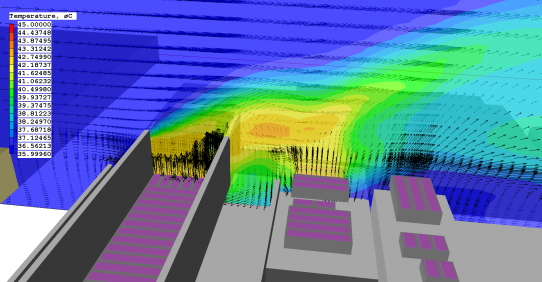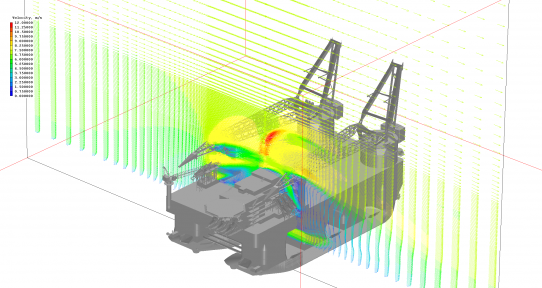
Flows of fluids and gasses occur around us everywhere.
The airflow determines to a great degree the perception of comfort, especially in large glass-covered areas, naturally ventilated offices and industrial complexes. The airflow also determines the diffusion of harmful substances in a space. With a CFD analysis, Peutz can provide both general and detailed information about the effects of architectural and engineering decisions on the thermal comfort in spaces of vastly differing dimensions and complexity.
Computational Fluid Dynamics (CFD) is a computer simulation method to solve specific airflow problems. In a CFD-study an integrated analysis can be made of, for example, all factors that effect thermal comfort, such as outdoor climate, heat radiation, cold down draughts on outside walls and induced convection in a mechanical ventilation system. Furthermore, by combining CFD calculations with tests in our wind tunnel, we can predict the efficiency of natural ventilation in offices and industrial buildings. Peutz also uses CFD analysis to predict, for example, the smoke distribution that will occur in shopping centres and multi-storey car parks, and the spread of heat and hazardous substances in and around industrial buildings.
As well, Peutz has performed several CFD studies regarding the efficiency of Dry-coolers and Hybrid coolers. Aim is to reduce the short-cut effects between the coolers.

Industrial applications are flows in reaction vessels, the propagation of CNG and LNG in the event of a spill and processes like cooling and drying in the food industry. Furthermore, upon designing consumer products, the merits of several design variants can be compared quickly and trial-and-error can be avoided.
- Examples of projects using CFD:
- Royal Albert Hall in Londen, England
- Staatsoper Unter den Linden in Berlin, Germany
- Parking garage Kelfkensbos in Nijmegen, The Netherlands
- LNG propagation NSCV Heerema of Leiden, The Netherlands
